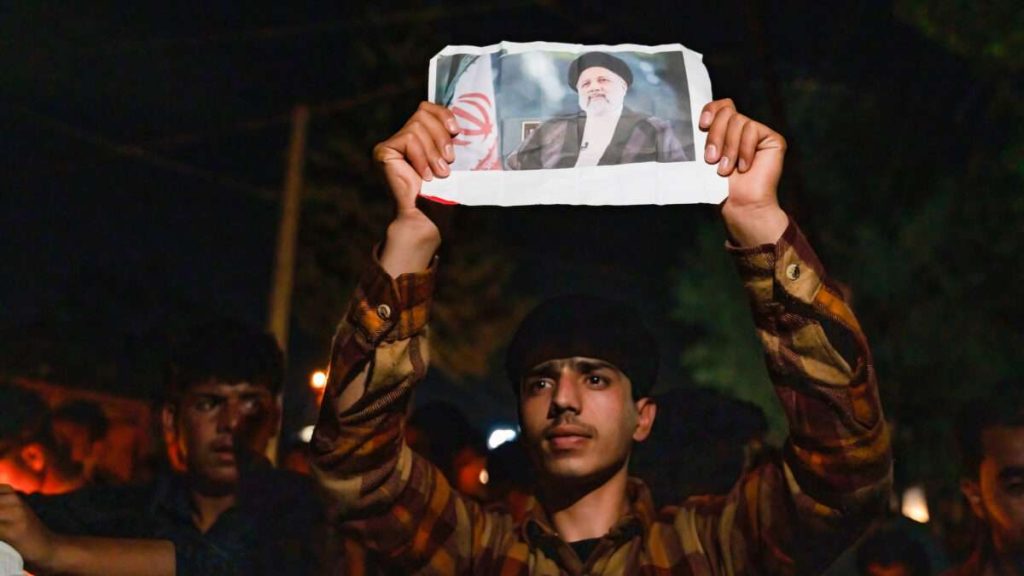What happens next in Iran? Yesterday, I reported on the death of Iran’s Foreign Minister Hossein Amir Abdollahian and President Ebrahim Raisi—seen as the likely successor to Ayatollah Ali Khamenei, who is 85—in a helicopter crash near the border with Azerbaijan. Some of Tehran’s residents, who live in opposition to the regime, celebrated with fireworks in the streets.
Raisi’s rival for succession had, up until the president’s death this past weekend, been Mojtaba Khamenei, the ayatollah’s 55-year-old son.
This presents a bit of a crisis domestically. “With previous supreme leaders arguing that hereditary rule under the shah was illegitimate, ‘they would be hard-pressed to sell hereditary leadership to the Iranian people now,'” Shay Khatiri, senior fellow at the Yorktown Institute, told The New York Times. In other words, the fact that Mojtaba is Ayatollah Khamenei’s son is going to look mighty bad if he is indeed picked to be Raisi’s successor.
But it’s not like Raisi (nicknamed the “butcher of Tehran” for his role in ordering executions following the Iran-Iraq war) had been a shoo-in: a notoriously uncharismatic man, who was perceived as merely a foot soldier of the ayatollah, was not particularly effective except insofar as he allowed the Islamic Revolutionary Guard Corps lots of leeway to do whatever they wanted.
New presidential elections will take place at the end of June. If past elections, in which the ayatollah has put his thumb on the scale to disqualify certain candidates (80 percent of candidates in a 2016 election and 50 percent in a 2020 election), are any indication, these one will be a sham, too.
It’s worth noting that the helicopter accident really does look like an accident. But also, Iran has quite a history of tech malfunctions that take powerful people out. “In previous years, at least two cabinet ministers and two leading military commanders have died in similar crashes,” writes Arash Azizi at The Atlantic, adding that “suspicions will inevitably surround the crash” and for good reason: “Air incidents that killed high political officials in Northern Rhodesia (1961), China (1971), Pakistan (1988), and Poland (2010) are still often subject to speculation.”
Scenes from New York: The fascinating tale of why many of the Chasidic wives of New York City and Rockland County are on a sex strike right now.
QUICK HITS
“For more than two decades, through two wars and domestic upheaval, the idea that al-Qaeda acted alone on 9/11 has been the basis of U.S. policy,” write Daniel Benjamin and Steven Simon for The Atlantic. “A blue-ribbon commission concluded that Osama bin Laden had pioneered a new kind of terrorist group—combining superior technological know-how, extensive resources, and a worldwide network so well coordinated that it could carry out operations of unprecedented magnitude. This vanguard of jihad, it seemed, was the first nonstate actor that rivaled nation-states in the damage it could wreak. That assessment now appears wrong.” “Two years ago, Moscow was so confident of the world’s hunger for its methane that it dumped its largest customer, the European Union, to pursue its invasion of Ukraine,” reports Bloomberg. “Putin felt he could afford to be so reckless because a new buyer was waiting in the wings: China.” “Actress Scarlett Johansson is threatening legal action against OpenAI for copying her voice for its latest AI model, accessible through ChatGPT,” reports The Washington Post. Johansson “claimed that she received an offer from OpenAI CEO Sam Altman in September to be the voice of its AI system,” most likely due to the fact that she played the titular character in the AI-oriented movie Her, but she said no to Altman. Johansson is alleging that Altman went ahead and did it anyways—a theory which may be bolstered by Altman’s recent cryptic tweet. I am 28 years old, but apparently very ancient, because this trend of sharing your location-tracking with basically everyone you’ve ever met sounds very foreign and bad to me. lol:
Mrs. Alitos everywhere. pic.twitter.com/knGOYzGHi4
— Mike Pesca (@pescami) May 20, 2024
The post Fireworks in Tehran appeared first on Reason.com.







